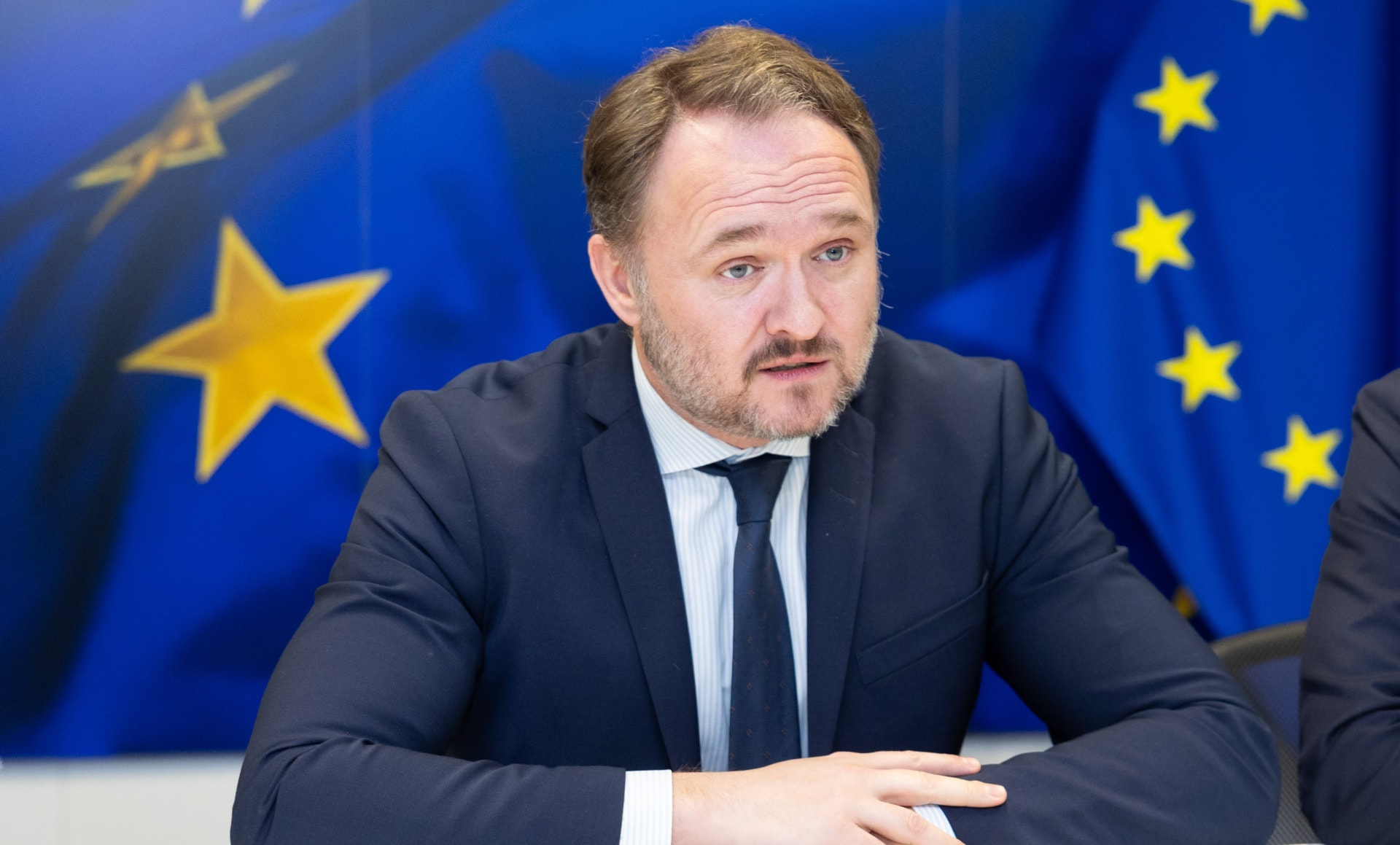On Tuesday, European Union governments agreed to ration natural gas this winter in an effort to combat gas supply cuts from Russia.
Since the Ukraine-Russia War began back in February, Russian gas in Europe has been a heated topic as many EU countries, particularly Germany and Italy, rely on it heavily to power their industries and heat their homes.
The signed legislation to ration gas supply came just a day after Gazprom, Russian state-owned energy giant, said it would cut supplies through the Nord Stream 1 pipeline in half – i.e., from the current (already reduced) 40% to 20%.
Gazprom makes supply cuts again
On Monday, Gazprom announced it would lower gas supplies through the Nord Stream 1 pipeline, the main pipeline for Russian gas going to Europe, to 20% of capacity because of a “technical condition” of one of the last two operating turbines.
The company, which blamed the previous cut to 40% of capacity in mind-June on Western sanctions, claims it was advised to stop the work of the turbine by an industry watchdog.
The cuts are expected to take place at 04:00 GMT Wednesday.
Despite Gazprom’s claim, Germany states there is no technical reason for the company to limit gas supply — only to add stress to Europe’s natural gas supply before winter.
Others have accused the Kremlin of using natural gas as a weapon of war. Upon seeing the news, President of Ukraine Volodymyr Zelenskyy said the cut was “an overt gas war that Russia is waging against a united Europe — this is exactly how it should be perceived.”
Since the beginning of the war on February 24, 12 EU countries have experienced halts or reductions in Russian gas deliveries.
By now, Gazprom has cut gas supplies entirely to Bulgaria, Denmark, Finland, the Netherlands and Poland over their refusal to comply with a Kremlin order to pay their bills in roubles instead of euros or dollars.
The latest cut will have a drastic effect on all of Europe, particularly on Germany, which prior to the war received 32% its natural gas from Russia in 2021; and Italy, which used to get 45% of its gas from Gazprom and now relies on Russian gas for about 25% of its supplies.
EU to sign legislation to ration gas in preparation for winter
After Gazprom announced additional cuts, on Tuesday EU energy ministers approved a draft European law to limit the demand for natural gas from August to March by 15% in an effort to ration gas in the winter amid Russia’s supply cuts.
The approved piece of legislation entails voluntary national steps to reduce gas consumption — something which the EU’s 27 member nations are allowed to implement themselves.
Already, France announced they would attempt to reduce natural gas use by 15% by turning down the temperatures of office thermostats in the winter and ensuring that air conditioners in public buildings and shops are used more efficiently.
If EU nations don’t meet the 15% reduction goal, the legislation allows the European Commision to ask member states to trigger a mandatory system of cuts if fears of a supply shortage are present.
Exemptions will be allowed for some countries that might have specific vulnerabilities or disadvantages from particular cuts.
Although the EU previously agreed to a Russian oil and gas embargo, the bloc has not yet sanctioned Russian gas as countries like Germany and Italy rely heavily on imported gas — yet now as Gazprom further cuts supply, this dependency is nearing a breaking point.
German Economy Minister Robert Habeck states this dependency was doomed from the beginning.
“Germany made a strategic error in the past with its great dependency on Russia gas and faith that it would always flow constantly and cheaply,” said Habeck. “But it is not just a German problem.”
With Europe preparing for a brutal winter in terms of gas supply, disruptions in Russian energy trade with the EU are threatening the beginning of a recession across the continent, just as stocks began recovering from the pandemic.
EU Ministers proposed gas deal fails to convince the markets and gas prices rise even further
Despite the grim circumstances surrounding the newly signed piece of legislation, the swiftly approved draft was meant to mark a turning point in EU politics as the decision to ration energy between national governments was a coordinated and decisively fast effort. The markets immediately reacted negatively, sending gas prices up this morning (July 27).
Admittedly, the deal was not a success, it was less than the 20% proposed by the EU Commission last week and it was coordinated only up to a point: Hungary refused to vote the draft, and its energy minister rushed to Moscow to negotiate a further deal with Putin to obtain more gas for Hungary – thus going against the EU resolve to show a united front against Russia.
Also, as it turns out, the exemptions the ministers agreed to were so many and so extensive that arguably, this gas deal amounts to a non-deal.
While it is a fact that EU countries vowed to voluntarily cut their gas demand by at least 15 percent over the next eight months, the energy ministers took back the power to impose mandatory cuts in an emergency away from the Commission. They returned it to the Council – that is, back to the EU member countries and away from EU institutions.
Now it is the EU Council that will have the power to declare an emergency with a majority vote to trigger mandatory cuts.
Worse, the exemptions to the gas deal effectively hollow it out. The EU Commission had projected to reduce gas by 43 billion cubic meters, officials said. This would be equivalent to an EU-wide gas cut of around 15 percent — But now with all the loopholes, gas savings are likely to be closer to just 10 percent according to early estimations – very far from the original 20% needed to make a real difference.
Understanding what is required is actually complex: As European Energy Commissioner Kadri Simson said when unveiling the rationing proposal last week, the gap between supply and demand “would be around 30 bcm in an average winter, 45 bcm in a colder one, and even larger if the winter is exceptionally cold — and we assume that non-Russian [liquefied natural gas] and pipeline supply will remain high through the winter”.
James Huckstepp, gas analytics manager for Europe, the Middle East and Africa at S&P Global Platts, told Politico reporter that 30 bcm was “just about” enough to survive through winter months without Russian gas, “but it doesn’t leave room for below normal temperatures or non-Russian supply outages.”
In short, the Commission had aimed for a rational, conservative approach that the EU energy ministers dismantled.
Perhaps the most interesting alternative proposal has come from Greece in a letter sent to EU Commission chief Ursula von der Leyen. As reported by Politico, Greek Prime Minister Kyriakos Mitsotakis proposed an EU-wide mechanism to compensate industrial users for reducing their gas and electricity use for the coming winter, arguing the idea “mixes economic and energy efficiency with European solidarity.”
As a united Europe faces a forecast of trying months, only time will tell if rationing will be enough to get EU nations out of a costly situation that Russia seems so eager to test.
Editor’s Note: The above article was updated on July 27 with mention of the Greek proposal.
The opinions expressed here by Impakter.com columnists are their own, not those of Impakter.com –In the Featured Photo: A gas plant. Source: Rawpixel.













